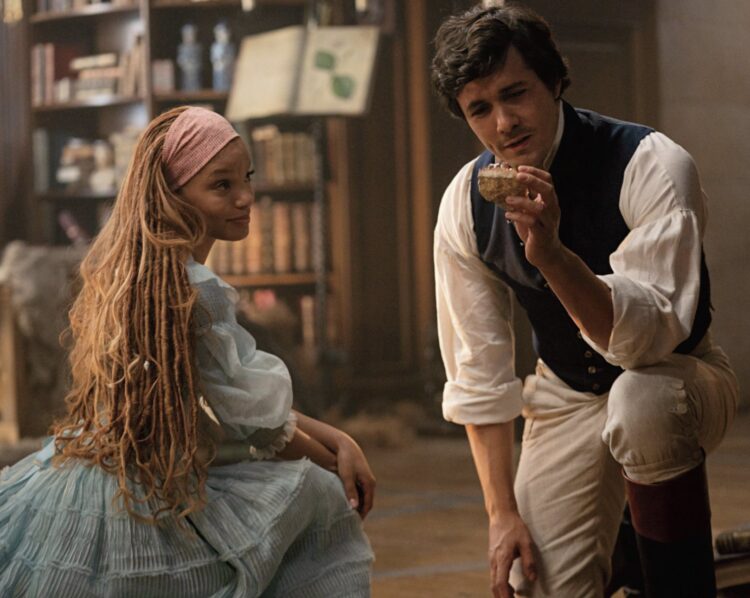The release of Disney’s remake of “The Little Mermaid” was criticized by an advocate who said the movie should have depicted slavery in the Caribbean for accuracy.
Although the Disney film is based on the original fairy tale, its mermaids are fictional creatures and they live in the kingdom of Atlantica, a fictional setting, Marcus Ryder, an advocate for media diversity, says the film should have incorporated the horrors of real slavery into the family movie.
Ryder, being the advocate that he is, saw the opportunity to point out how unrealistic the family-friendly, children’s movie handle a romantic relationship with a Black mermaid and her white love interest, Prince Eric.
In his blog post, “Disney’s The Little Mermaid, Caribbean Slavery, and Telling the Truth to Children,” Ryder said the following: “I do not think we do our children any favours by pretending that slavery didn’t exist. Setting the fantastical story in this time and place is literally the equivalent of setting a love story between Jew and Gentile in 1940 Germany and ignoring the Jewish holocaust.”
It is also worth noting “The Little Mermaid,” its remake, original 1989 animation, and the book it is based on, does not explicitly states where it takes place; the remake has only hinted at being in the Caribbean and the year is also undetermined as well.
“The Little Mermaid,” already receiving fierce complaints from critics who believe the casting of Halle Bailey, a Black woman, to play the role of Ariel was sacrilege and indulgence of cultural division, is currently performing well domestically in theaters but underperforming internationally, especially in China.
Ryder watched a movie with his 6-year-old son. The advocate suggests that the movie, which seems to be set during the time of African chattel slavery in the 18th century, should have been set in Haiti after it gained freedom from slavery. The advocate believes that the story should have featured Ariel meeting her prince amidst growing racial unity.
During the 18th century, Caribbean slavery experienced significant growth due to the rising demand for sugar and other crops. This led to a dramatic increase in the number of enslaved individuals in the region, and their living conditions worsened considerably.
The area has a significant number of people with African heritage, and most of the social and economic challenges in the Caribbean can be linked to the historical practice of slavery.
“We owe it to our children to give them the most amazing fantastical stories possible to help their imaginations grow,” Ryder said. “We do not do this by ‘whitewashing’ out the difficult parts of our history. We do it by embracing our rich history and empowering them with the truth.”
“The sad reality is this great film left me concerned that Disney did not take seriously this very sensitive time and place which due to the atrocities that happened there should be treated very carefully – especially for impressionable children,” Ryder, Head of External Consultancies at the Sir Lenny Henry Centre for Media Diversity, said.
When Ryder posted the blog on Twitter, it drew its own criticism, mostly from users who said he was taking “The Little Mermaid” too seriously and defenders of the Black-led film who said it was good as it was.
Ryder deleted his tweet, which went viral, because it was “widely misunderstood” by many. The advocate later clarified in another tweet that he actually liked the film and appreciated its representation of Black beauty and diversity on screen.
A culmination of critics says “The Little Mermaid” was a decent movie despite the anticipated hate and dislike from the trailer it initially got. Metacritic, a review aggregator, has “The Little Mermaid,” released on May 26, a score standing at 59 out of 100, a fair review.
The highly rated score comes from The Arizona Republic, which not only gave “The Little Mermaid” a perfect 100 score, but author Kaely Monahan said it “is Disney’s best live-action remake yet.”
The lowest reviews came from The New York Times and New York Magazine’s Vulture, which gave the movie a 30. Both publications essentially said that the new live-action version of “The Little Mermaid” lacks many important elements that made the original animated film enjoyable, instead feeling obligatory and defensive, striving for approval with noble intentions, and that Bailey, who nailed her performance as Ariel, is undeservedly betrayed by the lack of quality in Disney’s production.









